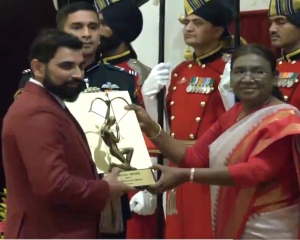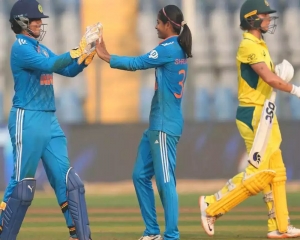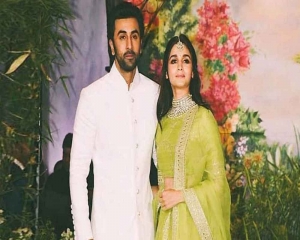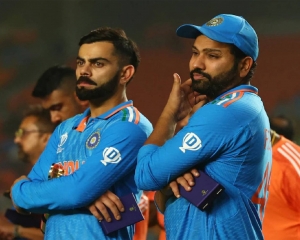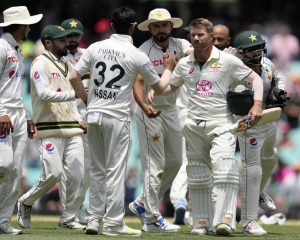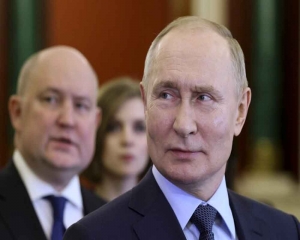India will roll out the world’s first nationwide screening from January 1, 2024, to ascertain whether the vaccine-derived poliovirus (VDPV) is present in any child with primary immune deficiency (PID), a rare class of hereditary diseases, that can pose a threat to the polio eradication programme, reports ARCHANA JYOTI
A VDPV is a rare variant that mutates from the strain contained in the oral polio vaccine (OPV). India reported its last polio case from Howrah district in WestBengal on January 13, 2011. A year later the World HealthOrganization removed India from the list of ‘endemic countries withactive poliovirus transmission’
.Presently, the primary means for detecting poliovirus is through acute flaccid paralysis (AFP) surveillance, which is supplemented by environmental surveillance of sewage samples.
However, there are threats of spillover of VDPV from immunodeficiency (iVDPV) children into the community. Hence, the need to screen all the patients with combined immunodeficiency has been felt to detect poliovirus excretion and intermittent follow-up of their immune parameters if found positive.
“The aim is to check the risk of iVDPV excretion in the polio eradication endgame strategy. There have been various individual studies where PID kids have been found to be carrier of the VDP,” scientists said. The screening will go a long way in ensuring the prevention of paralytic poliomyelitis in such kids besides better management of their genetic diseases once identified. In collaboration with the Indian Council of Medical Research (ICMR)-National Institute of Virology,(NIV), Mumbai and WHO, from January 1, 2024, the Sentinel site-based iVDPVs surveillance will be initiated at 21 premier health research institutes (see Box) in the 15 States. Stool tests of all PID children admitted/new cases will be investigated.
A study on "Long-term poliovirus excreters in India", led by a team of researchers led by senior scientist Madhu Chanda Mohanty from ICMR lab NIV and WHO, has paved the way for this decision, officials in the Union HealthMinistry said. “To mitigate the individual and community risks posed by iVDPVs during the polio endgame and the post-eradication era, it is important to identify those PID patients excreting polioviruses and provide the strategies and treatments available to rid both the individual and the community of the risk posed by iVDPVs,” Dr Pawan Kumar, Additional Commissioner (Imm) from the Union Health Ministry said in a recent letter to the officials at the identified sites. Other countries on the high risk for poliovirus transmission radar are also gearing up to launch similar screening program. Scientists explain that individuals with PID can excrete polioviruses(iVDPVs) for prolonged periods, which could act as a source of transmission of pathogens for months and go undetected by acute flaccid paralysis surveillance which is detected by symptoms like paralysis.The official from the Union Health Ministry highlight that this risk increases when people/kids with PIDs receive the OPV.
“People with PIDs cannotmount an adequate immune response to clear the weakened poliovirus from their gut. This means they shed the virus for long time because of a prolonged period of intestinal replication and increase the risk of mutation into a VDPV that can cause polio in unvaccinated people and others susceptible to the virus.”In this connection, under nationwide surveillance, PID children will be screened for the pathogen. Taking the lead, theNoida-based Post Graduate Institute of Child Health (PGICH), Noida in UttarPradesh, one of the WHO-identified 21 centers in India for PID screening recently conducted a high-level sensitization workshop on how to diagnose such cases and send samples for polio surveillance.The institute has registered more than 100 cases of PID and is providing treatment ranging from IVIG to Bone marrow transplantation. The meeting was conducted by Dr Arun Kumar, National Professional Officers(NPO), WHO country office, Dr Rajesh Kumar, SRTL, WHO, Dr Tanveer, SurveillanceMedical Officers (SMO), National Polio Surveillance Program alongwith the Department of Pediatric Haematology Oncology, Noida.
Dr Nita Radhakrishnan from the Department of Pediatric Haematology Oncology, PGICH) explained the participants including pediatricians how to suspect and diagnose PID kids, many of whom are often picked up latebecause of late referral from primary care centers. The surveyors will counsel guardians of these patients to give stool samples to ascertain their virological status.Prof Dr AK Singh congratulated the WHO team on this effort and extended all support for this rollout from the institute. “Integration ofIVDP related surveillance with acute flaccid paralysis surveillance of the existing poliovirus network will enhance continuous screening of patients with PID in the future,” said the officials.The proposed integration follows the lessons learnt from a four-year-longWHO-ICMR collaborative research project on iVDPV in India. In fact, a study was conducted at seven sites at different medical institutes in India from January2020 to December 2021, enrolling patients with identified PID. Based on the lessons learnt, a set of protocol has been preparedto ensure uniformity in its implementation across sites. The immunological parameters such as cytokine responses and anti-polio antibody titers responsible for enterovirus replication and virus clearance will also be investigated.
However, some of the challenges that the program is likely to face are cases where parents residing in remote areas finding inconvenient to travel to hospital sites to deposit stool samples. Another challenge will be the poor financial status of families which deters them from follow-up hospital visits for expensive treatment such as BMT after diagnosis of PID in their child, said the experts.
21 identified sites
- Sanjay Gandhi Postgraduate Institute of Medical Sciences, Lucknow.
- Bai Jerbai Wadia Hospital for Children, Mumbai.
- Indian Council of Medical Research National Institute of Immunohaematology, Mumbai.
- Calicut Medical College, Kozhikode.
- Aster CMI, Bangalore.
- Kasturba Medical College, Mangalore.
- Nizam’s Institute of Medical Sciences, Hyderabad.
- Post Graduate Institute of Medical Education & Research, Chandigarh.
- Dr Rajendra Prasad Government Medical College, Kangra.
- Sawai Maan Singh Medical College, Jaipur.
- AIIMS, Rishikesh.
- Sanjay Gandhi Postgraduate Institute of Medical Sciences, Lucknow.
- King George's Medical University, Lucknow.
- Super Speciality Hospital, Noida.
- AIIMS, Bhopal, Kalinga Institute of Medical Sciences, Bhubaneswar.
- AIIMS-Bhubaneswar.
- Gauhati Medical College, Guwahati.
- Apollo Hospitals, Chennai.
- Institute of Child Health, Chennai.
- Jawaharlal Institute of Postgraduate Medical Education & Research, Puducherry.
- Christian Medical College, Vellore.






